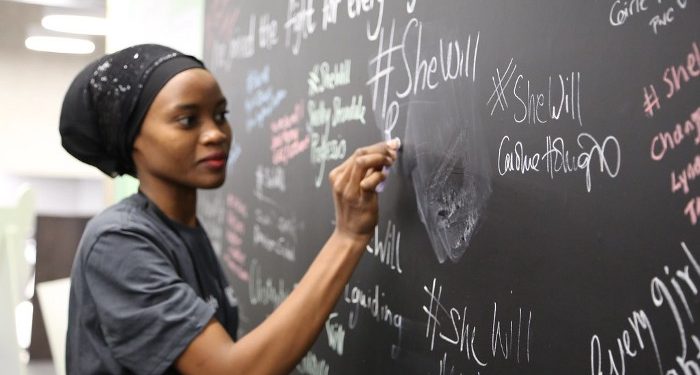On January 24, Nigeria joined the rest of the world to commemorate the International Day of Education with several symposiums and social media activities organised by both political and non-political actors with a pledge to improve the educational system of the country. In July 2021, president Muhammad Buhari while attending the Global Education Summit in London, UK pledged to increase funding of education in the country. From different global and local research reports, Nigeria has a history of an educational system in dire need of rescue. According to UNICEF, at least 10.5 million children are out of school in Nigeria, which is the highest rate in the world. This also indicates that one in five out-of-school children in the world is a Nigerian.
With this, girls, children with disabilities, from poor households, living in emergencies and remote areas are disproportionately affected. For instance, out of the 10.5 million out-of-school children, about 6.34 million are girls. Furthermore, attacks on educational facilities in North-East Nigeria have resulted in the destruction of most of the educational infrastructure in that part of the country.
While the government and different members of the civil societies have identified different strategies to address the several issues that affect education in the country, one can not deny the role of sufficient funding as a prerequisite in implementing the laid strategies. With the outbreak of the Covid-19 pandemic, the reality of the educational sector’s problems and inadequate funding has become even more apparent. Factors such as inadequate Internet connectivity, inconsistent power supply, expensive data costs, and the lack of virtual learning facilities in some places significantly limited the number of Nigerians who attended school.
Despite the increase in budgetary allocation for education this year from 5.7% in 2021 to 7.2% in 2022, the country is still a long way away from the internationally recommended benchmark that countries spend 15–20% of their national budget on education. This is also a shortfall from the promise of the president at the Global Education Submit in 2021 to increase funding to 14% in 2022, 16.7% in 2023, 20.4% in 2024 and 22.5% in 2025.
Judging by the present statistics of out of school children in Nigeria, there is a heightened need for the country to increase its funding to get all children in school and at least through to secondary school. It is estimated that the gross enrollment rate decreased from 85% to 45% for primary to secondary school transition in Nigeria.
As such, an increase in education budgetary allocation will make it easier to adopt and implement strategies to ensure that all children are enrolled in school, have access to continuous learning, and graduate with high-quality skills that enable them to find decent jobs.
Goodwill is not enough, we recommend that the government follow through on its promise to invest in education and expand enrollment, particularly among females and other marginalised groups. We also urge civil society organisations and citizens to participate in tracking education budgets and holding the government accountable for how it spends the money it has been given. State and local governments should also contribute and fulfil their duty by paying a 30% matching budget to enhance access to education at the state level and across the country.
The story is owned by Steer Initiative
About Steer Initiative
Steer is a continent-wide initiative actively identifying marginalized communities and providing them with tailored solutions through collaboration, volunteerism, and participatory partnerships. The initiative focuses on steering access to education, digital training for teachers, skills acquisition for women and young people, and social outreaches to address community challenges and support disaster relief. Steer leverages the support of like-minded individuals and civil society organizations who want to stand up for, reach, and empower communities to strengthen societal engagement, to drive equality and social change.

